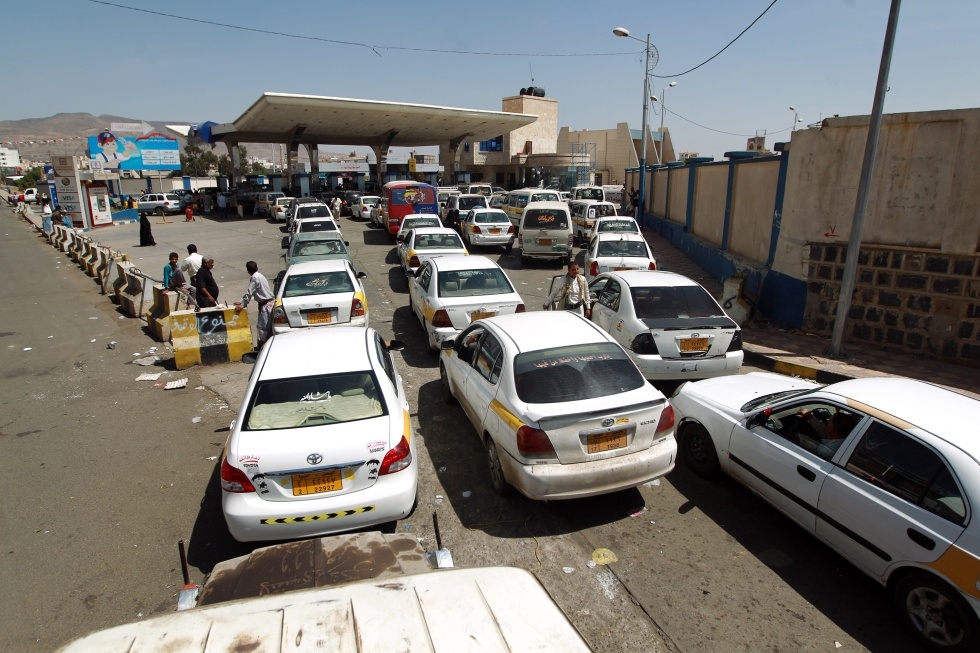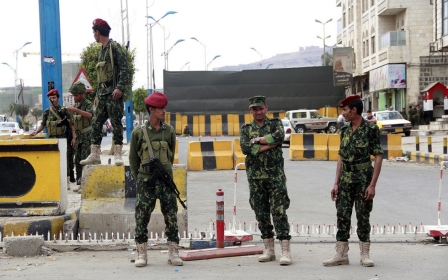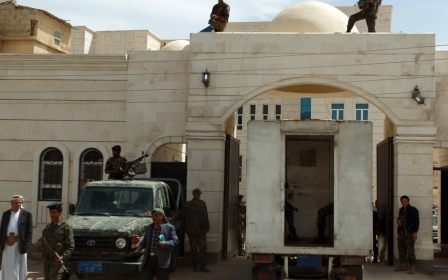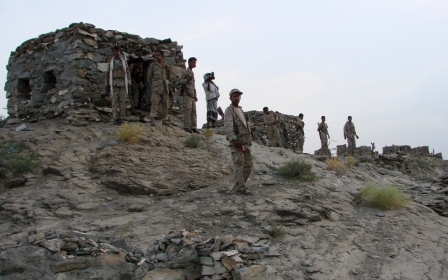Yemeni government threatens 'action' against fuel protestors

Yemeni authorities have taken strong action to quell social unrest sparked by fuel shortages this week.
On Wednesday morning, the Yemen Petroleum Company announced that it had distributed 2.5m litres of petrol to fuel stations around the capital at dawn.
The move follows an attack that saw the main road between Sanaa and Hudayda, Yemen’s fourth-largest city, blocked for two days.
Official government news sources reported that the road was blockaded by members of the Haraz tribe in retaliation for the deaths on Monday of two tribesmen, one of whom was a Saudi national, at a military checkpoint in Sanaa.
Meanwhile Yemen Now reports calls by the activist group "No Movement" for a total strike by car drivers on Wednesday.
New MEE newsletter: Jerusalem Dispatch
Sign up to get the latest insights and analysis on Israel-Palestine, alongside Turkey Unpacked and other MEE newsletters
According to the group’s Facebook page, Tuesday evening saw a complete strike by taxi and bus drivers in Jawlat al-Hutheili, a town 20km south of Sanaa.
An Interior Ministry source, quoted by the official news agency Saba, responded directly to so-called ‘malicious calls via social networking sites aimed at causing chaos.’
The source warned that the Interior Ministry would "take all necessary action to preserve the stability and security of the country", calling on citizens to inform security services of any impending action.
Yemeni citizens have been suffering from fuel shortages for over two weeks, with drivers sometimes queuing for more than a day without being able to purchase petrol or diesel.
On 22 April, the Yemen Times reported a demonstration by "hundreds" of farmers in Hudayda, calling on the government to solve the fuel crisis that is particularly plaguing farmers, who rely on diesel to irrigate their crops.
The picture below reportedly shows the chaos caused by the fuel shortage:
Middle East Eye delivers independent and unrivalled coverage and analysis of the Middle East, North Africa and beyond. To learn more about republishing this content and the associated fees, please fill out this form. More about MEE can be found here.




